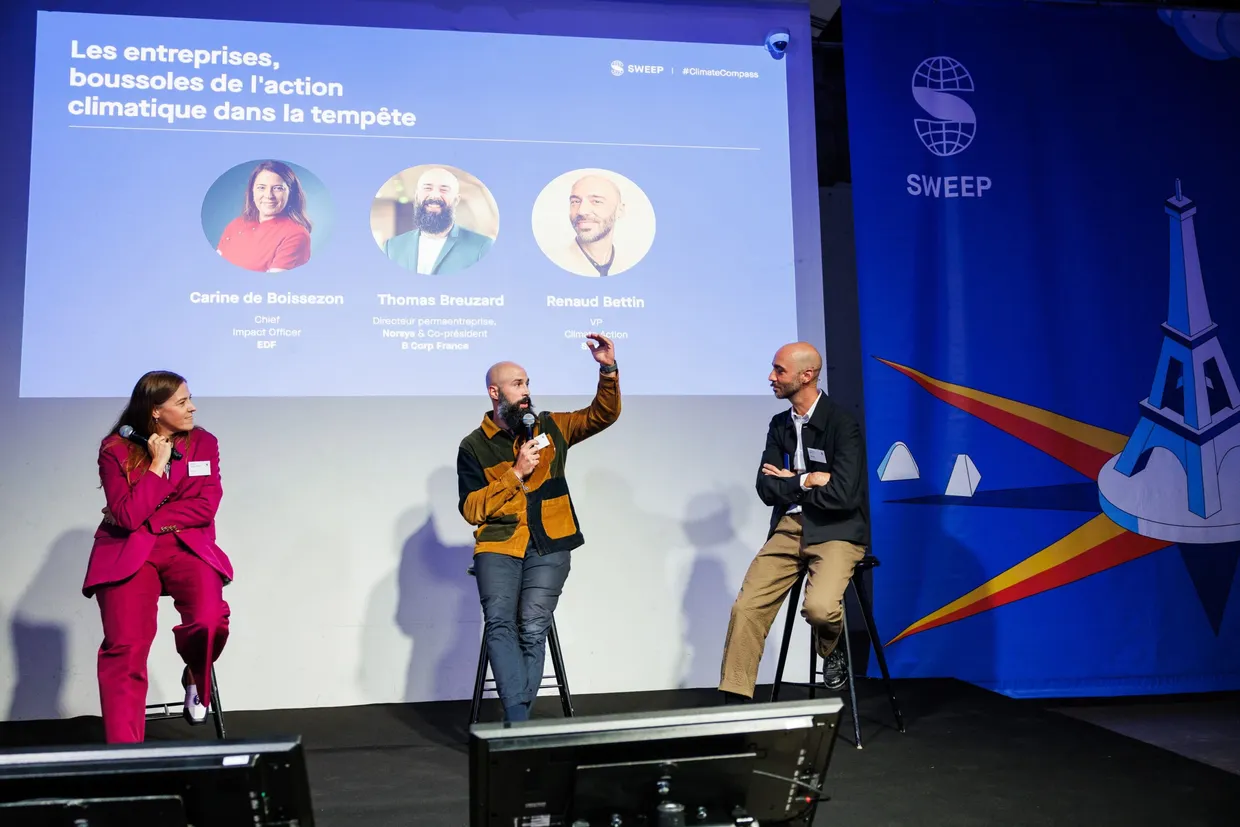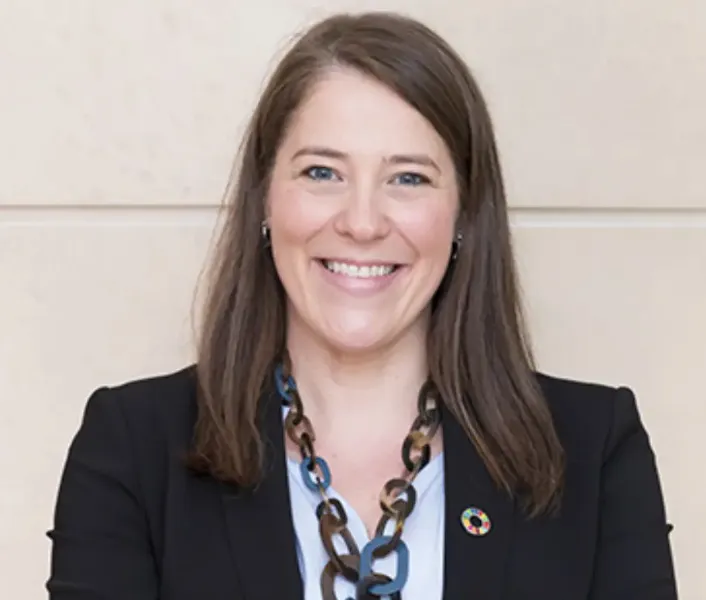Climate Compass – Governance, trust and the next chapter of sustainability

At Climate Compass Paris 2025, Sweep hosted an evening of discussion and ideas around climate and innovation. Among the highlights was a panel with Carine de Boissezon, Chief Impact Officer at EDF, Thomas Breuzard, Director of Permaentreprise at Norsys and Co-president of B Corp France, and Renaud Bettin, VP Climate Action at Sweep.
Together, they explored how companies can balance ambition with pragmatism, build trust with citizens and employees, and embed sustainability into governance and everyday decision-making.
Signs of progress and momentum
The conversation opened with a question about whether sustainability had stalled in 2025. For Thomas Breuzard, talk of a “backlash” was misleading.
Renaud Bettin agreed, pointing to recent research. “We’re probably closer to what researchers call the majority threshold – the moment when enough people want change that there’s no going back.”
Carine de Boissezon highlighted the gap between intention and tools.
Governance that shapes decisions
The panel also reflected on how sustainability enters decision-making at every level. For Carine de Boissezon, regulation such as the CSRD has helped bring environmental and social issues into boardrooms, but not always in the way intended.
“The CSRD pushed sustainability into governance, but leaders often only saw the reporting burden – the cost, the audits, the complexity. If we say data is strategic, then we must invest in it. The real challenge is making sure sustainability is not just a compliance exercise but part of how we run the company every day,” said de Boissezon.
Thomas Breuzard explained how Norsys has embedded sustainability directly into its governance by giving nature a seat at the board table.
Renaud Bettin emphasized that genuine action shows itself when pressure rises. “This period reveals which companies have truly integrated sustainability into their governance, and which were only talking about it. Those stepping back now make clear where their priorities really lay.”
Pragmatism, opportunity and the role of AI
Looking forward, the panelists encouraged companies to combine ambition with pragmatism. Thomas Breuzard suggested that organizations sometimes focus too narrowly on their own footprint, missing opportunities to achieve greater impact by supporting external projects. “We need to be more opportunistic, using the right indicators to guide us. Sometimes financing a soil regeneration project outside your core business will deliver five to ten times the carbon benefit. Companies should not be afraid to look beyond their own perimeter.”
Breuzard also described a new initiative within Norsys: measuring the carbon intensity per million euros of revenue for each business unit. “It’s a way to put the issue directly in front of managers and create accountability where it matters.”
Carine de Boissezon shared how EDF is making its purpose tangible through employee involvement. “We launched a workshop called ‘Being in line with our purpose.’ We randomly select 40 employees – not experts – and ask them to stress-test projects against our mission. It helps project leaders improve their ideas and ensures that sustainability is brought to bear in real life across the company, not just in reports.”
On technology, Breuzard advised caution but also recognized its potential. “We mustn’t put AI everywhere. It can make us lazy and overly dependent. But when used responsibly – for example to help measure carbon more effectively and to free people to focus on change management – it can be very powerful.”
Building trust for the future
The discussion closed with a focus on trust. Citizens want action, employees expect alignment, and regulators are raising expectations. For companies, the way forward is to embed sustainability into governance, use pragmatic strategies, and ensure their efforts remain credible and concrete.
As Carine de Boissezon concluded, “Sustainability must not be kept aside as an abstract concept. It has to infuse every decision, every investment, every conversation with our stakeholders.”
Sweep can help
Sweep is a carbon and ESG management platform that empowers businesses to meet their sustainability goals.
Using our platform, you can:
- Conduct a thorough assessment of your carbon footprint.
- Get a real-time overview of your supply chain and ensure that your suppliers meet your sustainability targets.
- Reach full compliance with the CSRD and other key ESG legislation in a matter of weeks.
- Ensure your sustainability information is reliable by having it verified by a third party before going public.





